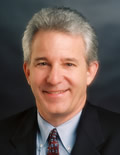Ventura's Big Read: To Kill A Mockingbird
Today begins the annual Ventura Big Read -- a month-long celebration of reading where everybody in town reads the same book, discusses it, and participates in many, many events surrounding the book's themes. The Big Read is coordinated countywide by the Ventura County Library Services Agency.
Last year's Big Read book was Bless Me, Ultima, by Rudolfo Anaya. This year's book is To Kill A Mockingbird, the classic story of crime, race, and justice in a small Southern town during the depression, written by Harper Lee and published 50 years ago this year. The kickoff event for The Big Read will take place today at 5:30 at the former Elks Lodge on the corner of Main and Ash.
As an author, I have to say that few books have had such an enormous impact on me as To Kill A Mockingbird. By now everybody knows the story of author Harper Lee, who based the book on her experiences growing up in Alabama during the Depression, and based the supporting character of Dill on her chlidhood friend Truman Capote (whom she later helped research In Cold Blood.)
To Kill A Mockingbird is a deeply affecting story about how people lived in such a segregated society, and how all of them are trapped in the mores of the society without any prospect of release. This is not only true of Tom, the African-American man unjustly accused of raping a white woman; but also Tom's accusers, the townspeople, the shy Boo Radley and even Atticus Finch himself -- the lawyer who is the father of the young narrator Scout and Tom's defender in court. Only the children, inlcuding Scout, can see past their own prejudices and understand what is really happening. It is a short book, one of the most beautifully written books I have ever read, and one with a plot "payoff" both haunting and rewarding. (Harper Lee has never written another book, but as an author I think I understand. It is an almost perfect novel, and what would be the point of writing more?)
Recently, the best-selling author Malcolm Gladwell wrote an article in The New Yorker about the book -- a kind of revisionist approach in which he argued that Atticus is not really so much of a hero as the book makes him out to be. After all, Gladwell points out, Atticus doesn't challenge the unfair system that keeps Tom down; he simply operates within it. Gladwell seems to be making the argument that Atticus is overrated and so is the book.
Gladwell's right, of course; Atticus is bound up in the mores of his time and place, just and unjust, as much as anybody else. But I think that's what makes the book such an important one. To Kill A Mockingbird reminds us that none of us is perfect, not even the noble Atticus Finch; we all must operate within the context of what's possible in the time and place we live; and this humanity is what drives both the good and the bad within us. As a reader and an author, I have always appreciated this suble insight in To Kill A Mockingbird; and I hope it is not diminishing the book to say that as a politician I appreciate the book's qualities as well.
I hope you read To Kill A Mockingbird this month and participate in the Big Read events.

Atticus isn't so much a hero, but a levelheaded, fair, gentle, and intelligent man with the courage of his convictions. It seems that in today's society, those with such convictions are looked upon as frauds or a freaks. As a woman, I speak for myself, and my friends who have expressed the same sentiment, that we hoped to marry a man with the same characteristics.
ReplyDeleteTook a second try, but I am so pleased to say that I accomplished my goal.